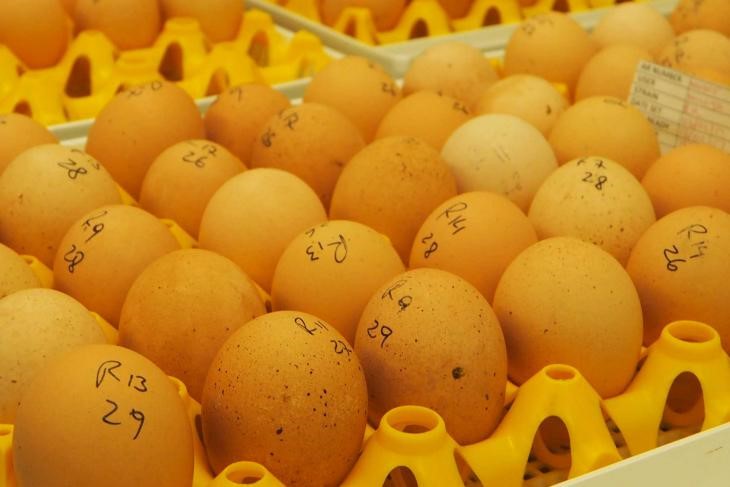Study reinforces need for more targeted genetic modification of infectious bronchitis vaccine viruses for poultry.
May 16, 2019

Researchers at The Pirbright Institute in the U.K. have shown that infectious bronchitis (IB) virus vaccines produced in eggs have unpredictable mutations that may be prone to reversion in the field.
IB is a poultry disease that results in large economic losses across the globe, the institute said.
Live attenuated vaccines, where the IB virus is weakened so that it causes less severe or no disease, are used in the field because they offer better protection compared to other types of vaccines, Pirbright said.
In a process known as serial passage, the vaccine virus is generated by infecting eggs and allowing the virus to grow, removing it and infecting another batch of eggs, and so on sequentially until the virus is sufficiently weakened, the institute explained. However, little is known about how this method of attenuation affects the virus genetically and, therefore, the mechanisms by which it is being weakened, the researchers added.
The team compared IB virus genomes that had been passaged through eggs more than 100 times to find out which genes are involved in weakening the virus. They discovered that mutations occurred throughout the IB virus genomes, but only nine mutations were found more than once across the viruses.
“This shows that using egg passages as a means of creating attenuated IB virus vaccines produces unpredictable changes in the virus,” said Dr. Erica Bickerton, head of the Coronaviruses Group at Pirbright. “The presence of so few consistent mutations that may weaken the virus indicates the risk that a vaccine strain generated this way could revert back to a more virulent form in the field.”
The team’s research, published in the Journal of Virology, reinforces the need for more targeted genetic modification of IB vaccine viruses to ensure that the changes are both reliable and achieve the best protection.
“We will use the mutation hot spots that we have identified in this study to inform the development of live attenuated vaccines that are genetically modified in the lab,” Bickerton added.
Around 44 billion chickens are produced worldwide every year, and as a heavily relied upon food source, it is important that diseases such as IB are controlled effectively, Pirbright said.
Source: The Pirbright Institute, which is solely responsible for the information provided and is wholly owned by the source. Informa Business Media and all its subsidiaries are not responsible for any of the content contained in this information asset.
You May Also Like

.png?width=300&auto=webp&quality=80&disable=upscale)

